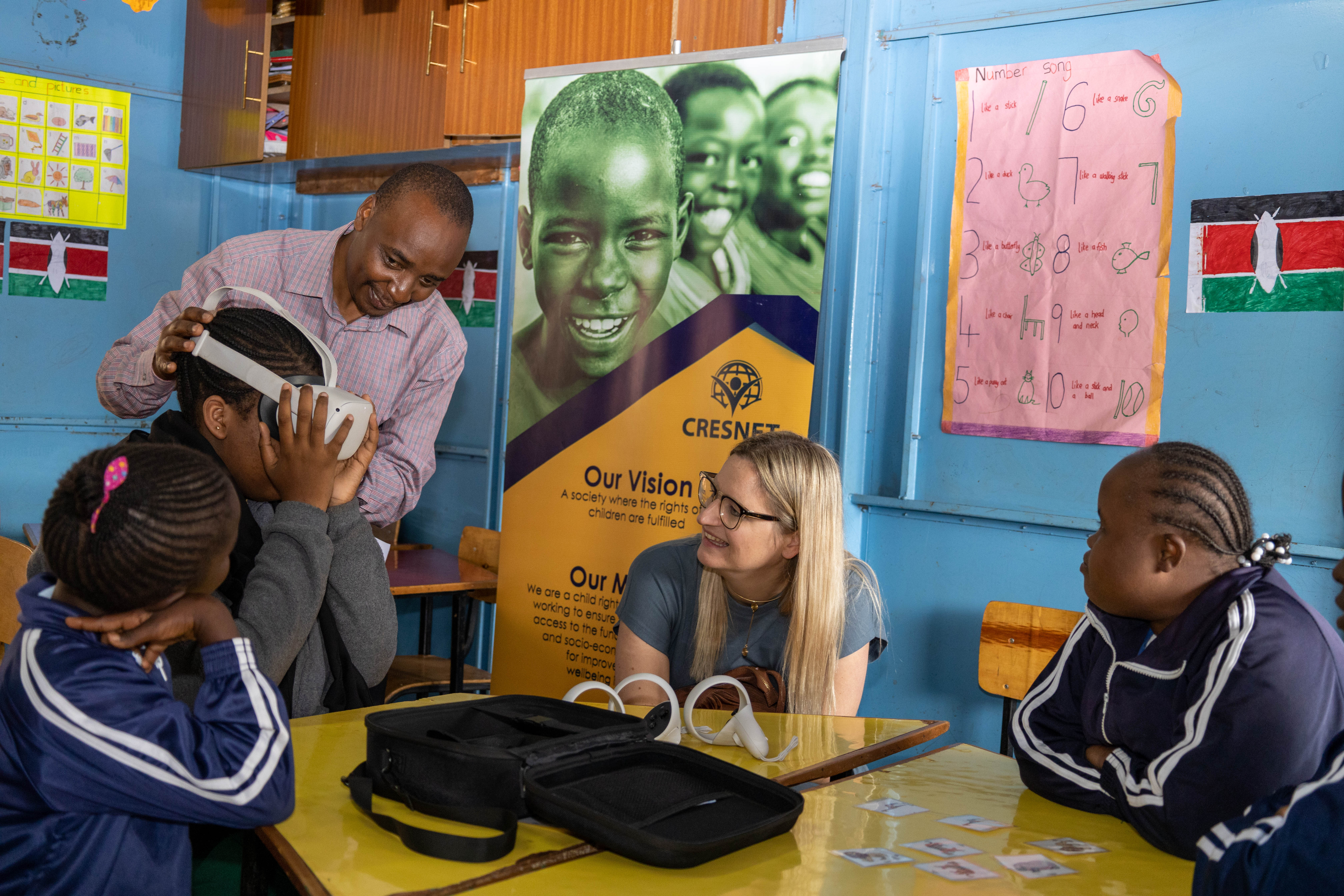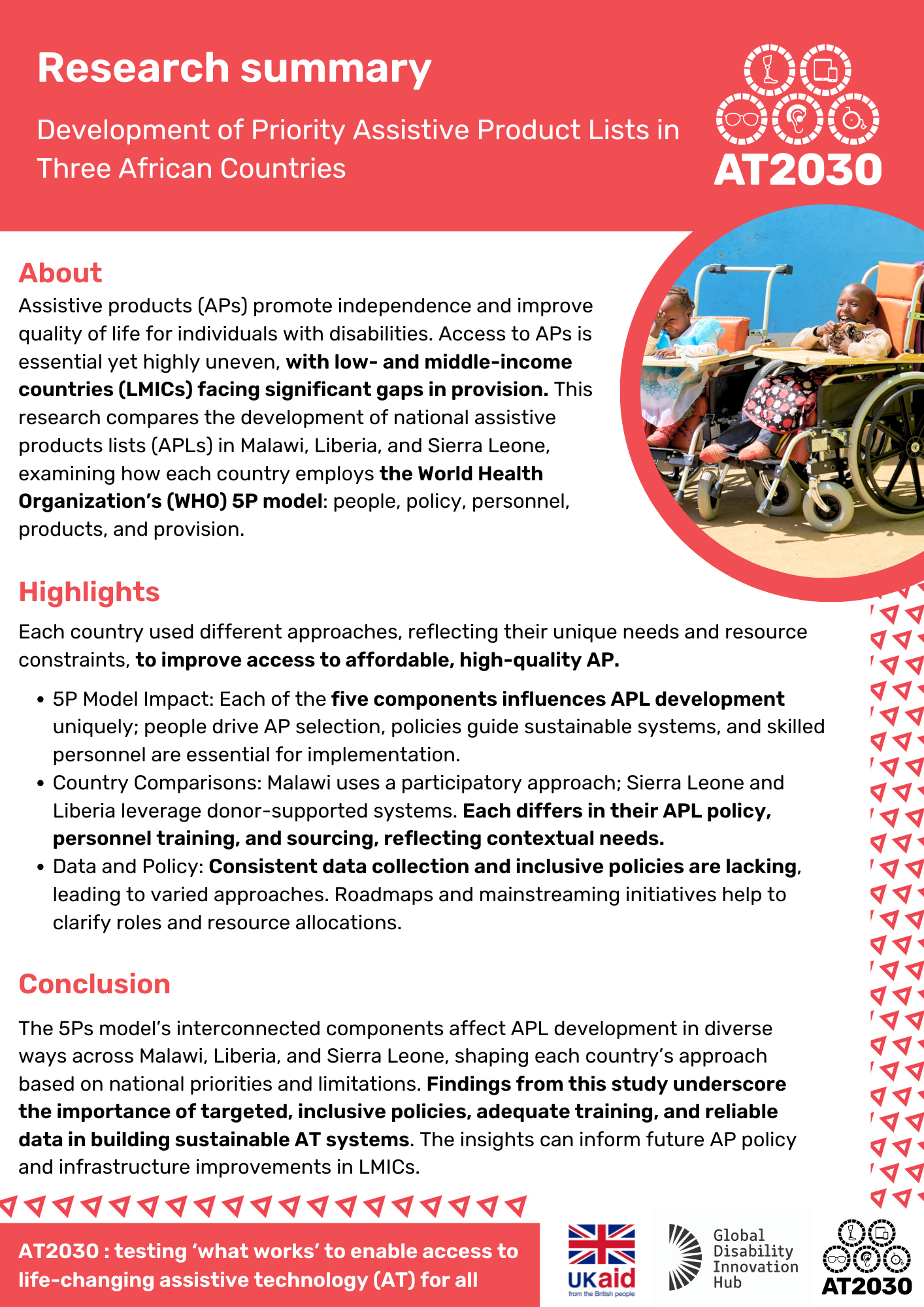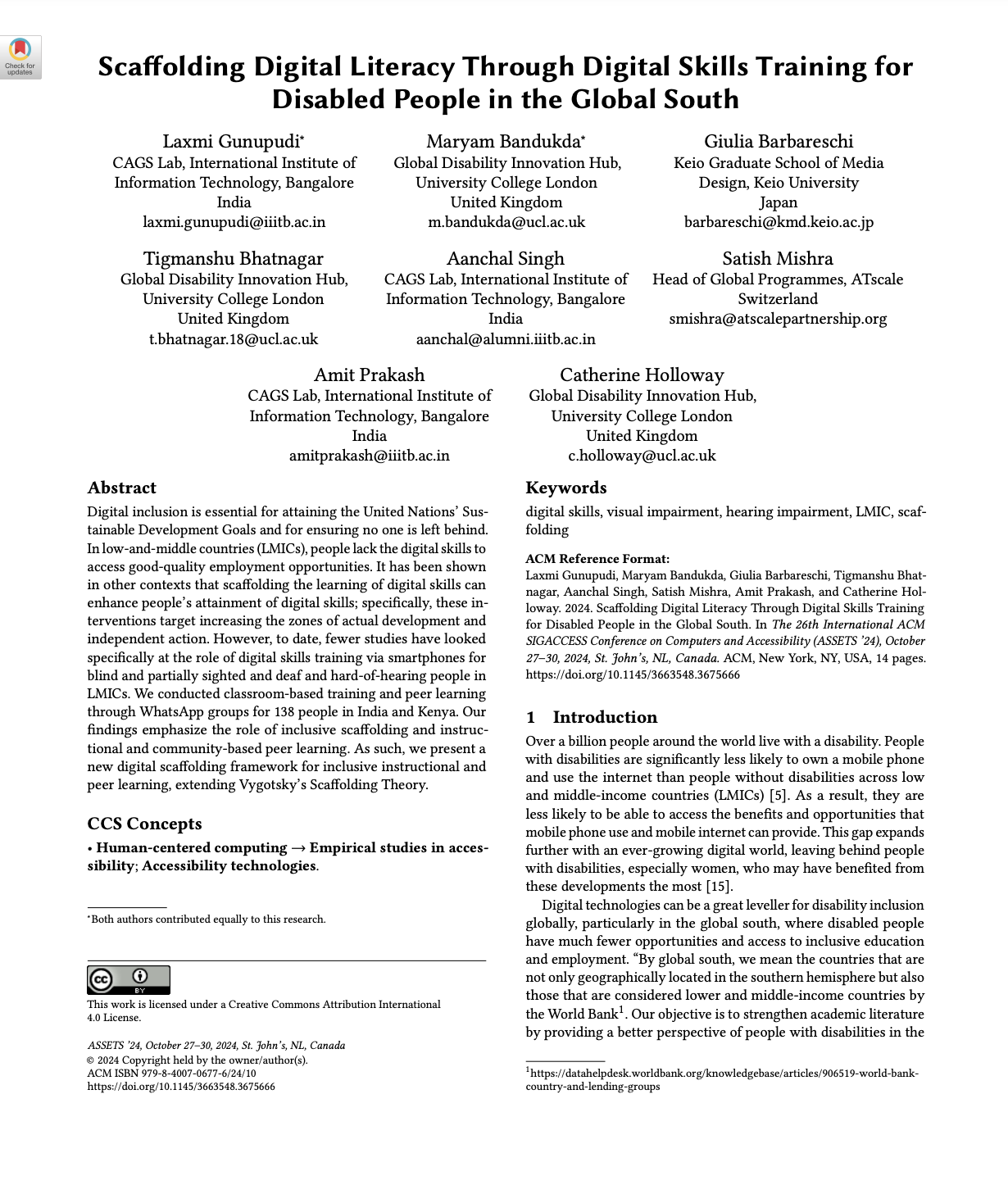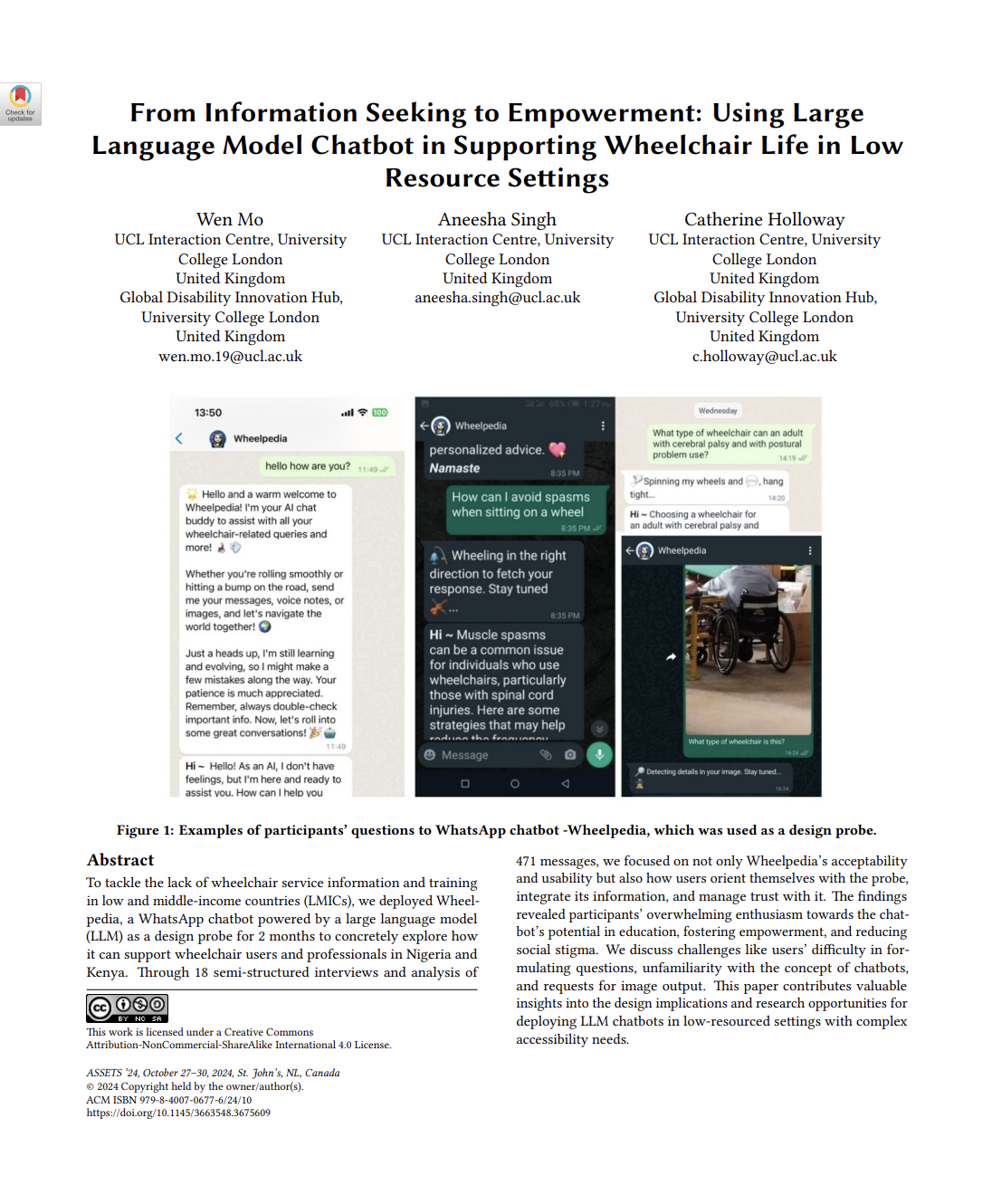What Works
The What Works project focuses on research related to the AT2030 programme, aiming to answer specific questions and gather insights.

The What Works project cuts across the AT2030 programme and aims to research specific research questions or draw insights from the programme. Previous research supported the research and evidence for the first Global Report on Assistive Technology. It also researched the market shaping and making mechanisms, including the first set of product narratives. It has conducted systematic reviews on digital manufacturing for prosthetics and orthotics alongside other areas of computing research. We have also researched the impact of COVID-19 on assistive technology provision and have developed an initial snapshot of insights taken from all research outputs.
The next phase of AT2030 will start in January 2025. A new research methodology will be employed to code and present insights for funders, entrepreneurs, policymakers, researchers, advocates and assistive technology users. We will also expand the research on the impact of assistive technology to include social justice and support further research on trauma and assistive technology. This sib-programme works closely with the fellowship sub-programme.
Partners
-
UCL GDI Hub
-
UCL Institute of Making
-
UCL Institute for Innovation and Public Purpose
-
London School of Hygiene and Tropical Medicine
-
University of Maynooth
-
University of Nairobi
-
ISPO
-
WHO
-
UNICEF
-
CHAI
Publications
Latest
-
Understanding the Video Content Creation Journey of Creators with Sensory Impairment in Kenya
Catherine Holloway, Lan Xiao, Maryam BandukdaOct. 22, 2025KenyaAcademic Research PublicationsVideo content creation offers vital opportunities for expression and participation, yet remains largely inaccessible to creators with sensory impairments, especially in low-resource settings. We conducted interviews with 20 video creators with visual and hearing impairments in Kenya to examine their tools, challenges, and collaborative practices. Our findings show that accessibility barriers and infrastructural limitations shape video creation as a staged, collaborative process involving trusted human partners and emerging AI tools. Across workflows, creators actively negotiated agency and trust, maintaining creative control while bridging sensory gaps. We discuss the need for flexible, interdependent collaboration models, inclusive human-AI workflows, and diverse storytelling practices. This work broadens accessibility research in HCI by examining how technology and social factors intersect in low-resource contexts, suggesting ways to better support disabled creators globally.
-

Development of Priority Assistive Product Lists in Three African Countries: Research Summary
Emma M. Smith, Ikenna D. Ebuenyi, Ying Zhang, Laura LigthartNov. 7, 2024Research SummariesAccess to assistive products (APs) is crucial for the independence of people with disabilities, yet availability is limited, especially in low- and middle-income countries (LMICs). This study compares the development of national AP lists in Malawi, Liberia, and Sierra Leone using the WHO’s 5P model—people, policy, personnel, products, and provision—each country tailoring the model to local needs. Findings emphasize that inclusive policies, trained personnel, and reliable data are essential for improving AP access, providing insights to guide future AP policies and infrastructure in LMICs.
-

Scaffolding Digital Literacy Through Digital Skills Training for Disabled People in the Global South
Laxmi Gunupudi, Maryam Bandukda, Giulia Barbareschi, Tigmanshu Bhatnagar, Aanchal Singh, Satish Mishra, Amit Prakash, Catherine HollowayOct. 27, 2024Academic Research PublicationsDigital inclusion is key to the UN’s Sustainable Development Goals. In LMICs, limited digital skills hinder employment, especially for disabled individuals. Our study in India and Kenya trained 138 participants using classroom instruction and WhatsApp-based peer learning. We found that inclusive scaffolding and community-based learning are essential, leading to a new digital scaffolding framework extending Vygotsky’s Theory to enhance digital skills for all.
-

From Information Seeking to Empowerment: Using Large Language Model Chatbot in Supporting Wheelchair Life in Low Resource Settings
Wen Mo, Aneesha Singh, Catherine HollowayOct. 27, 2024Academic Research PublicationsWe deployed Wheelpedia, a WhatsApp chatbot, in Nigeria and Kenya to address wheelchair service gaps. Through interviews and message analysis, we explored its usability, trust, and impact on education and empowerment. Findings highlight challenges and opportunities for LLM chatbots in low-resource settings.